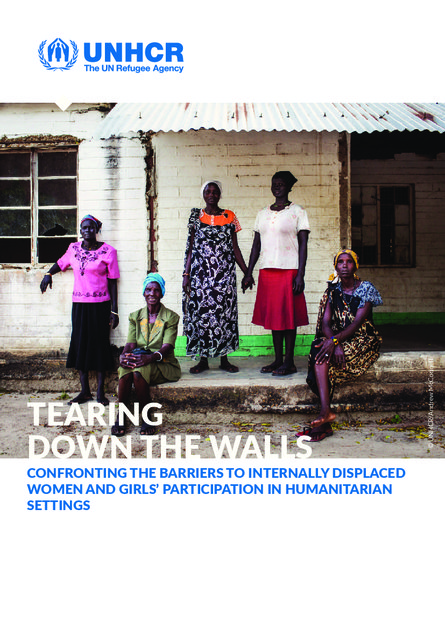
Internal displacement is one of the most pressing policy and humanitarian challenges standing before the global community. This UNHCR research project is an effort to further investigate the gender dimensions of internal displacement by understanding the barriers facing internally displaced (IDP) women and girls in participating in making decisions that affect all aspects of their lives.
The objectives of this study are:
- To identify barriers to the full and meaningful participation and leadership of IDP women and girls in national policy and legal mechanisms and solutions.
- To provide actionable recommendations to overcome barriers to the full participation and leadership of IDP women and girls.
This study’s findings are derived from a literature review of global practices and themes related to IDP participation and gender equality in humanitarian settings, and from fieldwork conducted in Niger and South Sudan in late 2018. Borrowing from several theoretical frameworks on participation, our analysis looks at how participation plays out within three spheres:
- the individual and the household;
- the local level comprising the community and/or camp; and
- state/national levels that are often the domain of the elite. This project identifies ways that IDP women and girls can substantively realise their right to participate in decision-making in their households, their communities, and their nation.